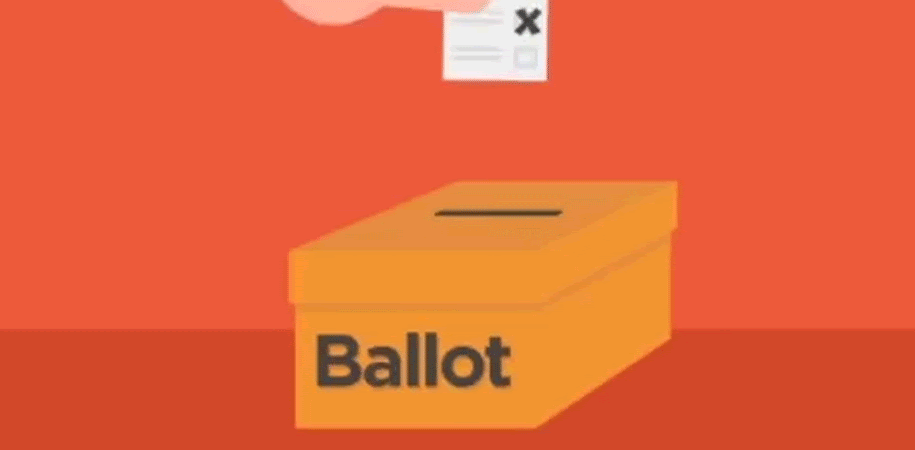The campaign posters are up and quite hard to miss. The tweets have begun to centre around who looks like an Xposé presenter and who is jumping on the Abortion support bandwagon. But honestly what is going on?!

Are you registered to vote?
First of all, let’s make sure we’re registered to vote. If you ever been registered in the past, using the RFA2 form, this means that you are registered FOR LIFE. This means you should always been on the Register of Electors. If you can’t remember if you’ve been registered, then have a quick check here. If you’re not registered, then fill out the RFA2 form, get it stamped by the Gardai and send it to your local County Council ASAP.
If you need to change your address as you’ve moved and you want to vote in your local area, then fill out the RFA3 form and do the same.
You need to send these forms off before the 7th of May for them to reach your local County Council on time to be put on the register.

What are we voting on?
So there’s three different things you’ll be asked to vote on come the 24th of May. The Local Elections, the European Parliament Elections and the Divorce Referendum.
The Local Elections are to vote in local Councillors that represent your local communities in the local authorities. All about local this and local that. Each city and county is divided into local electoral areas, which means the people you vote for deal with local issues and appropriate services that are important to the community. Education, healthcare, roads, housing and transport among other things are what your local Councillors should be dealing with.
You don’t need to be an Irish citizen to be able to vote in the Local Elections however you must be 18 or over and be on the register of electors.
Each community has different candidates running so definitely do quick scan of who’s running and from what party. Check out this handy article with some information of who’s running where. The closing date to get nominated to run is the 4th of May, so there might be some changes before then! Also check out this map to find out what your local constituency is.
The European Parliament Elections relates to Ireland’s representation in the European Union. There are 8 institutions of the EU and the European Parliament is one of them. This Parliament debates and legislates on issues like climate change, international trade, economic growth and consumer protection. Currently there are around 750 MEP’s (Members of European Parliament) who have been directly elected to this Parliament. The EU represents the interests of over 510 million EU citizens, we’re in there somewhere!
At the moment, Ireland will elect 13 MEP’s to the European Parliament, although this number could change depending on Brexit. MEP’s sit on tons of committes in Brussels, debating, writing and making changes to legislation before it goes to a vote.
What constituency are you in for the European Parliament Elections?
Ireland has three European Parliament constituencies: Dublin; Midlands-North-West; and South.
- Dublin is a four-seat constituency taking in the city of Dublin, Dún-Laoghaire-Rathdown, Fingal and South Dublin.
- Midlands-North-West is a four-seat constituency, comprising Cavan, Donegal, Galway, Kildare, Leitrim, Longford, Louth, Mayo, Meath, Monaghan, Roscommon, Sligo and Westmeath.
- The South is a five-seat constituency taking in Carlow, Clare, Cork, Kerry, Kilkenny, Laois, Limerick, Offaly, Tipperary, Waterford, Wexford and Wicklow.
- One constituency covers all of Northern Ireland.
A total of 59 candidates will contest the European Parliament Elections in the three Ireland constituencies. These include 17 candidates in Midlands-North-West, 23 in the constituency of Ireland South, and 19 in Dublin. For the full list of candidates, click here.
Divorce Referendum
And if that wasn’t enough to remember there’s also a referendum on the article in our constitution about divorce. Divorce was legalised in Ireland over 2 decades ago. Currently in our constitution it says that couples have to live apart for at least 4 years before they can apply for a divorce. Add on all the legalities of that and it amounts up to about 5 years, which is a lot of time to be married to someone you don’t want to be married to.
Voters will be asked if they wish to remove the four-year minimum living apart period from the Constitution and allow a reduced term to be defined by legislation. They will also be asked about the recognition of foreign divorces.
The Referendum Commission says that there will be one question on the ballot paper. It says voters can either vote Yes to allow both changes, or No to reject both changes. However, voters cannot accept one change and reject the other.
So basically, if you vote yes, it means that a couple will only have to live apart for 2 years and that any couple that has been divorced outside of Ireland but come to live here, their divorce will be valid and recognised in Ireland. If you vote no, that means you don’t want these changes.

So do we know what the hell is going on now?
Well I would certainly hope so. But please do your own research and make an informative decision on how you want to vote and who for. Don’t just follow your peers or parents, actually commit to educating yourself so that you can be an active voter. Students and young people in Ireland have a lot more power than we realise, which can be seen through our win on Marriage Equality and Repeal. If we want Ireland to change, we need to be active and engaged in what’s going on in our country and in the EU.
So do your duty to yourself and to your country, and get out there a make an informative VOTE!

College Officer for Cathal Brugha Street
Final Year Baking and Pastry Arts Student ??

























